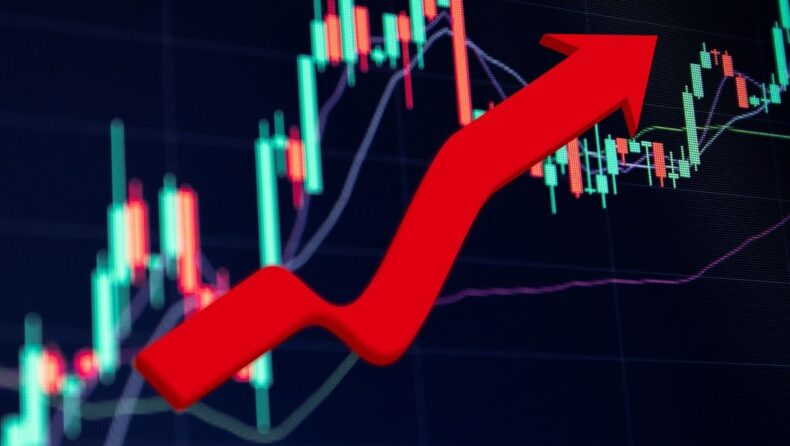Despite another high inflation print, the NSE and Wall Street’s key indexes climbed Tuesday morning as investors assessed news that some Russian military forces will begin returning to their regular barracks after finishing training near the Ukrainian border.
After the report of lessening the Ukraine conflict, the Sensex rises 1736 points. Even as global markets remained on edge amid rising Russia-Ukraine tensions, domestic equities indexes rebounded on Tuesday from their most significant sell-off in ten months, backed by advances in IT, auto, banking, and FMCG sectors.
Concerns that the Kremlin would approve a move to invade Ukraine as soon as this week has created a fresh headwind for global markets, which are concerned that the battle will aggravate inflation and cause other economic problems.
On Tuesday, gold prices fell from a multi-month high, while palladium prices fell roughly 3%, as rumors of Russian forces returning to their positions in Ukraine fueled a rally in risky assets. By 1042 GMT, spot gold had fallen 0.8 percent to $1,854.50 per ounce after reaching its highest level since June 11 at $1,879.48. Gold futures in the United States declined 0.7 percent to $1,857 per ounce.
After yesterday’s greatest single-day drop in the previous ten months, investors were left wondering if the pattern had changed when the market opened today. Even though we had a tremendous pullback rebound today led by automobiles, banks, IT, and FMCG, a convergence of factors is now weighing on investors’ minds.
“The story of the day,” S Ranganathan, Head of Research at LKP Securities, told news agency Reuters, “was that speculators took advantage of the correction, sparking short-covering amid good export statistics. For January.”
Russian Foreign Minister Sergei Lavrov’s comments that there was still room for dialogue and comparable diplomatic attempts from Western nations appear to be helping to calm markets in recent days.
“The stock market has been on a roller-coaster ride, and we expect this to continue in the foreseeable future. Updates on Russia-Ukraine tensions and their influence on global markets will be on the radar without any big local events.
Limiting leveraged holdings and waiting for the markets to normalize are our recommendations.”- Ajit Mishra, Religare Broking’s VP of Research on a geopolitical level; oil fell from a seven-year high to roughly $94 a barrel on Tuesday, weighed down by reports that some troops in Russia’s military districts bordering Ukraine are returning to barracks, easing tensions between Moscow and the West.
Apart from India and the United States, all Asian share indices fell on Tuesday as investors considered the ramifications of a potential Russian invasion of Ukraine. After stock markets in the United States and Europe lost ground on Monday, MSCI’s broadest index of Asia-Pacific equities outside Japan was down 0.4 percent in early regional activity.
The Nikkei in Japan was down 0.2 percent, while the S&P/ASX200 in Australia was down 0.32 percent. The Hang Seng Index in Hong Kong fell 0.52 percent early in the morning. Despite the tensions between Russia and Ukraine, futures markets indicate a strong probability of the Federal Reserve hiking interest rates at its March meeting.
Published By – Vanshu Mehra
Edited By – Subbuthai Padma













